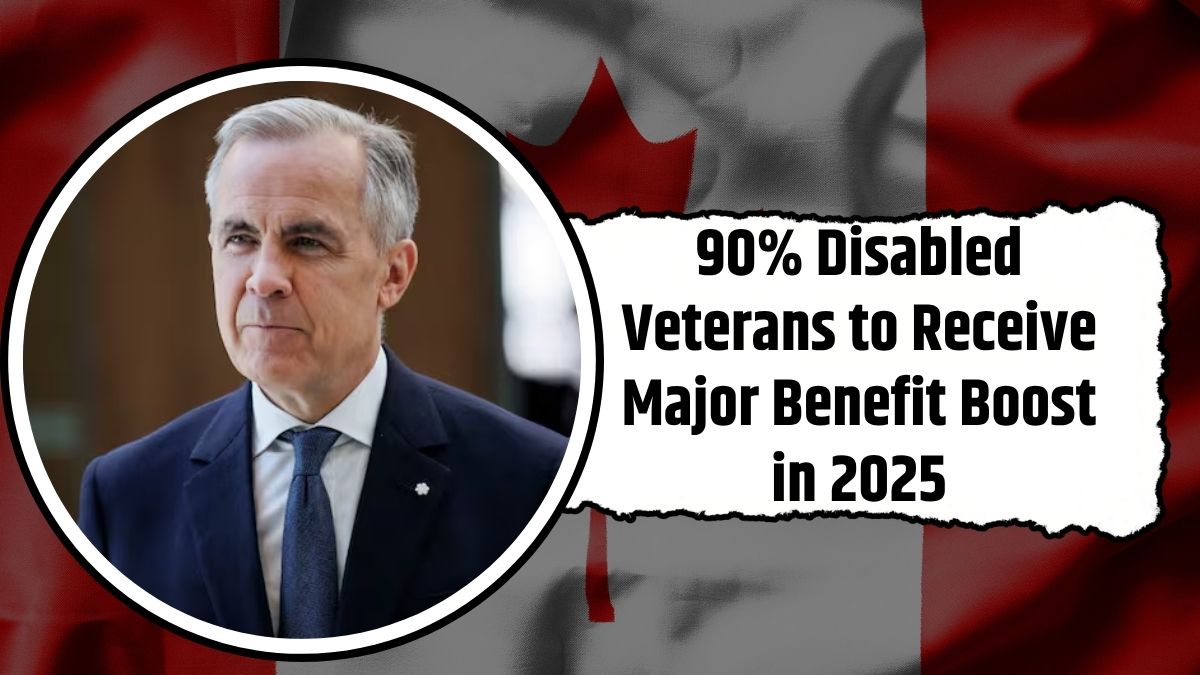Big changes are coming to the Veterans Affairs compensation program in 2025. The VA disability benefits 2025 update includes significant increases for veterans with high disability ratings, especially those rated at 90%.
Thanks to cost-of-living adjustments (COLA) and reevaluated benefit thresholds, 90 percent disabled veterans will see higher monthly payments, expanded healthcare access, and new pathways to full benefits—including potential eligibility for 100% compensation through revised unemployability criteria.
For many veterans long caught between the gap of 90% and 100% ratings, this update represents more than money—it’s a recognition of service, a boost in quality of life, and a clearer route to the full support they deserve.
What’s Changing in VA Disability Benefits for 2025?
The 2025 VA benefits update stems from a combination of COLA increases, inflation-driven costs in veteran care, and growing calls from advocacy groups urging more fairness in compensation structures.
Here’s a summary of the key updates:
- Monthly payment increases for veterans rated 90% and 100%
- Broader access to VA medical and mental health services
- Eased requirements for TDIU (Total Disability based on Individual Unemployability)
- Additional aid for housing and transportation
- Faster and simplified rating appeal processes
For 90 percent disabled veterans, these reforms mean higher income, faster claim reviews, and access to benefits historically reserved for 100% ratings—especially under the new unemployability provisions.
2025 VA Compensation Table for 90% Ratings
To illustrate the impact of the upcoming increases, here’s an estimate based on an 8.75% COLA adjustment:
| Dependent Status | 2024 Monthly Payment | 2025 Estimated Payment | Annual Increase |
|---|---|---|---|
| Veteran alone | $2,172.39 | $2,362.00 | +$2,277.72 |
| Veteran with spouse | $2,328.39 | $2,531.00 | +$2,430.72 |
| Veteran with spouse & child | $2,442.39 | $2,654.00 | +$2,540.72 |
| Each additional school child | +$100 | +$112 | +$144 annually |
These payment boosts help ensure that veterans with high disability ratings aren’t left behind as costs rise across all sectors of life—from food to fuel to prescription medications.
How the 2025 Changes Benefit 90 Percent Disabled Veterans
For veterans rated at 90%, these changes finally bring relief after years of stagnation and limited access. Here’s what 90% disabled veterans stand to gain:
- Improved monthly financial support through higher compensation
- Expanded access to specialty medical care, including telehealth and mental health resources
- Eligibility for travel reimbursement programs and caregiver support
- New education benefits for dependents, including tuition support
- Faster reviews for rating upgrades or supplemental claims
Most importantly, some veterans may now qualify for full 100% compensation under updated TDIU rules, which take into account whether a veteran’s service-connected conditions prevent gainful employment.
Understanding the Updated TDIU Pathway
Total Disability Individual Unemployability (TDIU) allows veterans who aren’t rated 100% but are unable to work due to service-connected disabilities to receive full benefits. In 2025, the VA is making it easier for 90% rated veterans to qualify.
If a veteran meets the following criteria, they may receive 100% pay:
- Medical evidence shows inability to maintain substantial employment
- Combined disability ratings affect both physical and mental work capacity
- Work history shows long-term unemployment or underemployment due to disabilities
This update is a game-changer for veterans who fall just short of 100% but have been effectively unemployable for years.
Action Steps: Preparing for the 2025 VA Benefits Update
To make the most of these updates, veterans should take the following proactive steps:
- Verify your current disability rating through the VA portal
- Schedule a Compensation & Pension (C\&P) exam if your condition has worsened
- Review TDIU eligibility and prepare supporting documents
- Update dependent and marital status for accurate benefit calculation
- Contact a VA-accredited representative or VSO for personalized help
These changes will be automatically applied, but updating your records can help prevent delays or underpayments.
Veterans should also keep an eye on VA correspondence between January and June 2025, when official letters detailing new payment amounts will be mailed.
Expanded Healthcare and Support Services
Beyond the money, 90% disabled veterans will gain easier access to essential VA services, including:
- Specialty care referrals
- Mental health counseling and PTSD treatment
- Rehabilitative programs and adaptive equipment
- VA Home Loan updates and housing grants
- Veteran-directed caregiver support services
These updates are about more than compensation—they aim to improve daily life and long-term wellbeing.
What It Means for Veterans Close to 100%
If you’re currently rated at 90%, this may be your best opportunity to reach 100% through:
- Supplemental claims for worsening conditions
- TDIU applications based on employment history
- Combined rating adjustments under clearer 2025 guidelines
Given that even small rating increases can significantly impact income and healthcare access, now is the time to consult with a VSO and ensure you’re getting what you’ve earned.
FAQs
Q1. What are the VA disability benefits 2025 updates?
They include payment increases, expanded healthcare access, TDIU eligibility updates, and improvements to the rating appeal process.
Q2. How will these changes help 90 percent disabled veterans?
They will receive higher compensation, easier access to benefits, and may qualify for 100% benefits under unemployability rules.
Q3. When will the new payments start?
The updated compensation rates will be applied starting January 1, 2025.
Q4. Do I need to apply for these benefits again?
Most updates are automatic, but you should verify your rating and eligibility, especially for TDIU or dependent status updates.
Q5. Can 90% disabled veterans now qualify for 100% benefits?
Yes. Under revised TDIU rules, if a 90% veteran is unable to work, they may receive 100% compensation.








